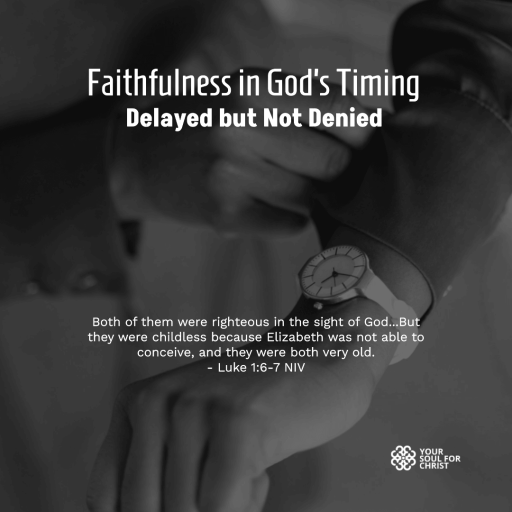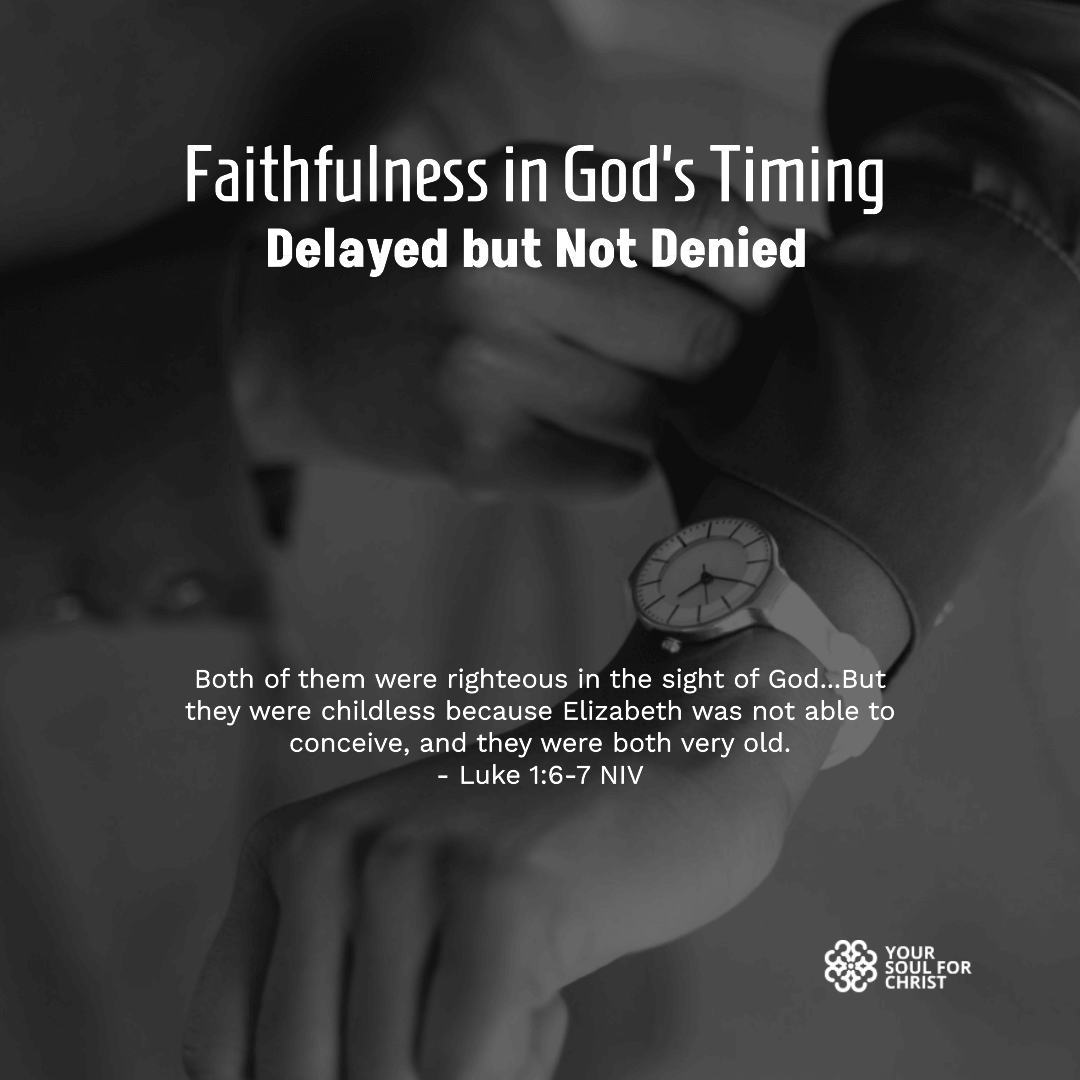Both of them were righteous in the sight of God, observing all the Lord’s commands and decrees blamelessly. But they were childless because Elizabeth was not able to conceive, and they were both very old.
Luke 1:6-7 NIV
At first glance, Luke’s account presents a striking contrast. Zechariah and Elizabeth lived righteous lives, fully devoted to God’s commands and walking blamelessly before Him. They practised sincere obedience, not just in public but from the heart. Yet despite such evident faithfulness, they remained childless. They had grown old, past the natural age for conceiving children. This tension challenges a common assumption many believers carry: that faithfulness to God should result in a swift, visible blessing.
Their story reveals a deeper, more challenging truth. One can walk uprightly before the Lord and still experience disappointment. Blamelessness does not shield us from sorrow. Luke makes it clear that Elizabeth’s barrenness did not result from sin or failure but formed part of a divine plan not yet unveiled. This passage quietly dismantles the transactional view of faith which suggests that obedience always produces immediate reward.
Many believers, when facing long delays or silence from heaven, grow restless. Instead of resting in God’s timing, they attempt to create their own answers. Abraham and Sarah, though promised a son, grew weary of waiting and turned to Hagar. Their decision brought forth Ishmael—a child born of human striving rather than divine timing. But Elizabeth chose a different path. She did not rush ahead. She continued in faithful devotion, even when prayers remained unanswered. Her life stands as a testimony to quiet strength and lasting faithfulness.
The question then becomes personal: can you still be found blameless when the answer hasn’t come? Will your devotion endure when the promise feels far off? In today’s fast-paced culture, where delay often feels like denial, true faithfulness shines all the more brightly. Zechariah and Elizabeth show us that godly patience is not passivity. It is trust. It is holding firm when nothing changes and still choosing to walk in obedience.
Scripture gives us other examples of such faith. Job, though blameless and upright, lost everything and still clung to God. David, anointed by God, endured wilderness seasons before he ever wore a crown. Each of these lives teaches us that God often uses waiting to refine us, not to punish us. His silence never means He has forgotten. His delays do not cancel His promises.
Eventually, the silence ended. An angel appeared to Zechariah in the temple and declared, “Your prayer has been heard.” Heaven had taken note. Though they may have stopped praying aloud, God had not stopped listening. When His appointed time arrived, Elizabeth conceived—not just any child, but John the Baptist, the forerunner to Christ Himself. What looked like a delay became the stage for God’s greater glory. Their faithfulness did not go unnoticed. Their long wait was not wasted.
So if you find yourself in a season where your prayers go unanswered and your soul aches with longing, take courage. God still honours faithfulness. He still sees those who walk upright, even when life feels empty. Often, the very place where we feel barren is the ground where God prepares His greatest work.
Living It Out
Faithfulness in the face of delay reveals strength, not weakness. It is not resignation but reverent trust. It is the kind of obedience that touches heaven. So keep walking. Let your quiet commitment speak more loudly than your circumstances. Be like Elizabeth—unmoved by time, rooted in trust. And when God’s perfect time arrives, you will see that His promise never left you. The wait will not have been in vain.

